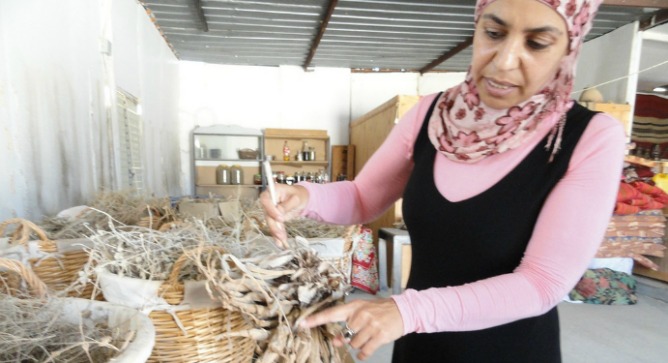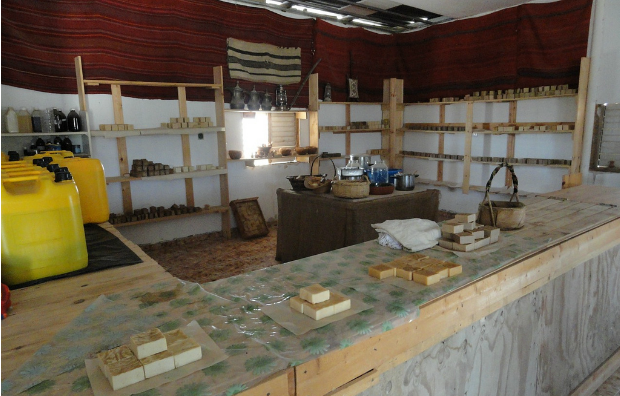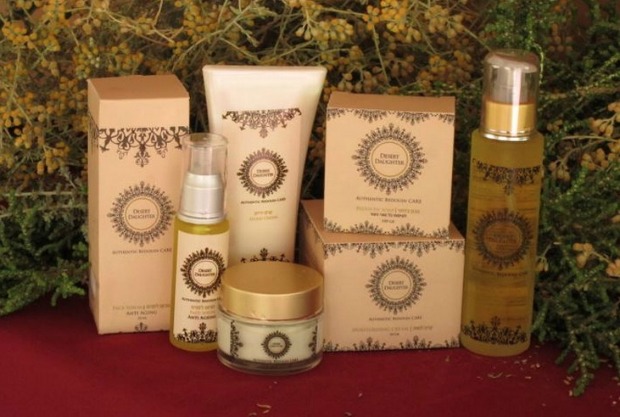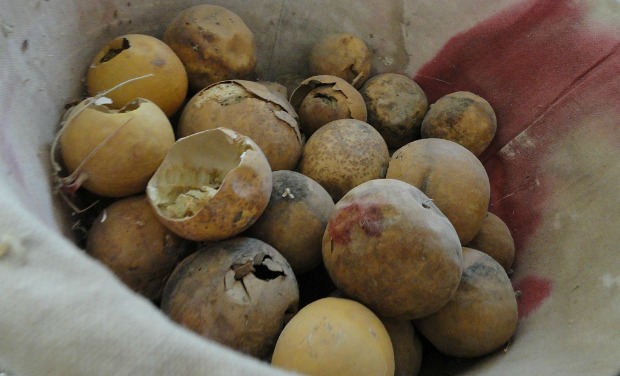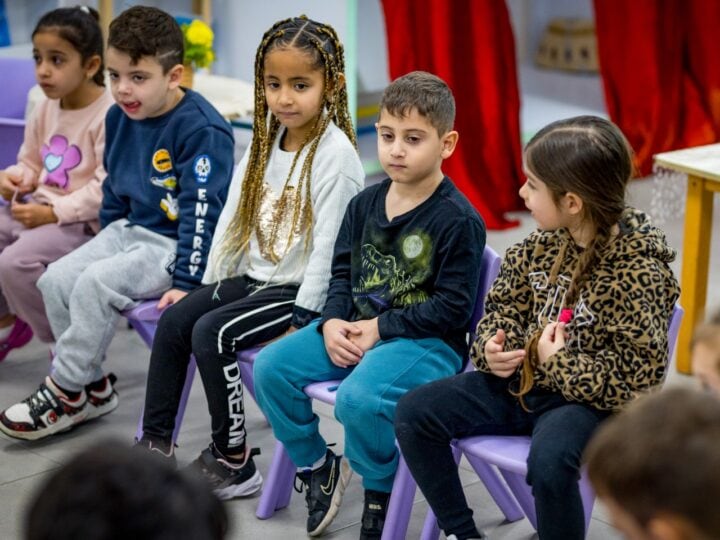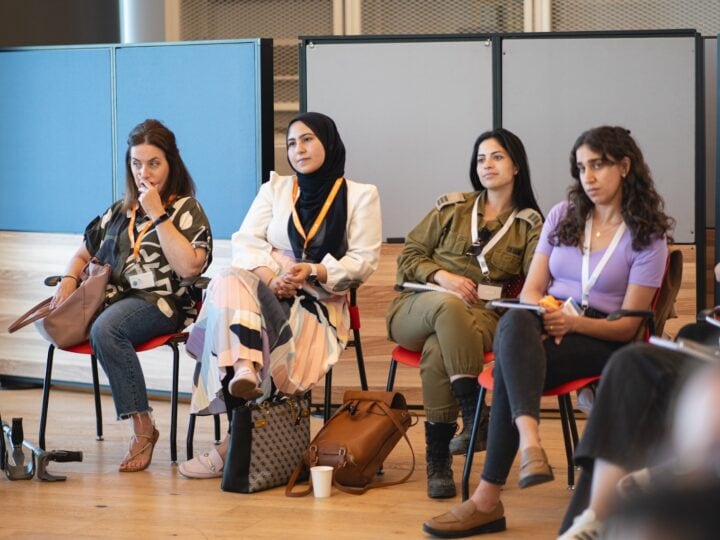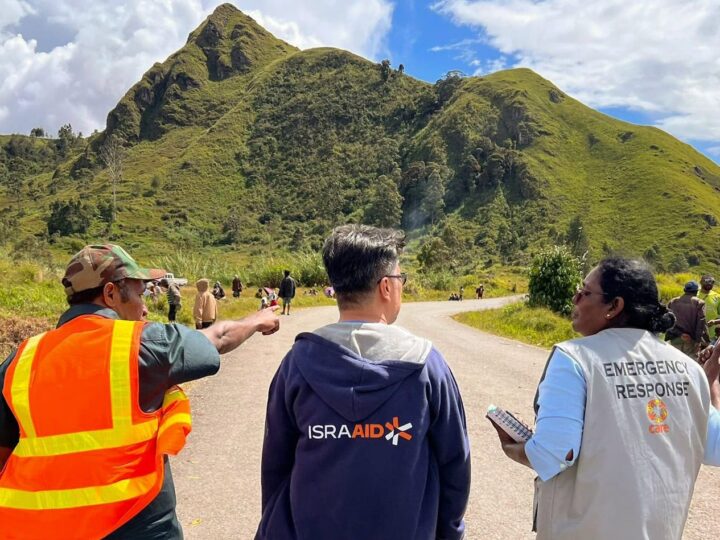Once, Bedouin women roamed with the seasons, foraging for plants and helping graze animals where the rains were kind enough to leave water for the desert to lay down roots and turn green.
Like in any traditional society, the Israeli Bedouin had their healing secrets from the tribe: tinctures and cures, and herbal remedies based on nearby plants. These secrets were handed down from woman to woman.
Spread the Word
• Email this article to friends or colleagues
• Share this article on Facebook or Twitter
• Write about and link to this article on your blog
• Local relevancy? Send this article to your local press
But in Israel, as in other westernized cultures, that wisdom is being lost and forgotten. Now an Israeli Bedouin woman has reversed her role in life, going from traditional to modern, back to traditional, with a twist.
This is the story of Mariam Aborkeek, a Bedouin woman from Israel’s Negev Desert who has refused to marry, instead giving her full attention to turning Bedouin natural healing remedies into an international business called Desert Daughter.
Aborkeek was different than most Bedouin women from the outset. She was born in a multigenerational tent in the planned Bedouin town of Tel Sheva beside Beersheva. That part of her story is typical. But while most Bedouin women from her time were married young, and didn’t learn to read or write, she was off to London to study for a bachelor’s degree in marketing. This was more than 15 years ago, says the 40-something Aborkeek.
She traveled far to realize that what she needed in life was close to home, in the Israeli desert.
In the early years in London she didn’t look back to the days of communal tent living, but was happy to have access to modern fashion and fancy cosmetics, soaps and creams. She would bring some of these products back to her family in Israel.
A non-native itch
But with this desert daughter out of her native environment, she started noticing her skin was itching and breaking out in spots. Maybe it was the preservatives or chemicals in the Western products she was buying? She thought of her grandmother and the natural products and creams the elder would brew as the tribe’s medicine woman.
Aborkeek grew up seeing her grandmother collect wild desert shrubs, turning them into tinctures and cures. So she went back to using products made by her grandmother to fix her skin.
Meanwhile, with encouragement from her organic-minded roommate in London, Aborkeek started bringing her grandmother’s preservative-free natural products back to the UK as gifts, where everyone was crazy about them.
“The soaps your grandmother is making are better,” her roommate told her.
“I realized my grandmother had so much knowledge inside of her,” Aborkeek tells ISRAEL21c.
By the late 1990s, Aborkeek was making her own soaps and creams for the family, and today has a successful local business, with international buyers coming to her workshop in the desert to purchase her specialties.
In the beginning, her grandmother didn’t like the idea at all of “selling” traditional medicine — camel milk soap, black cumin oil soap, a joint relief oil that works well for arthritis, and a product that clears up skin.
Aborkeek convinced her that the products were also making women more beautiful. With her grandmother’s approval, she established the business in 2005. Her grandmother died later that year.
Plucked from local, natural sources
At first people in Aborkeek’s community made jokes about her. She took out loans and established her lab in her mother’s kitchen. Then when her family saw she was serious, her dad gave her a patch of dusty land on the outskirts of town on which to base the business.
A little white donkey also lives there under a tree, and today four other Bedouin women are employed by the company, which also conducts seminars on traditional Bedouin herbs and using them in products.
Some of the product trademark secrets include the use of nigella sativa, or black cumin oil, a cure-all remedy used in traditional Arab healing. There is also citrullus colocynthis, a desert shrub known for its analgesic and anti-inflammatory properties, which can help relieve joint pain. Mentioned in the Bible, it is also known as the colocynth, bitter apple, bitter cucumber, desert gourd, desert melon, egusi or the vine of Sodom.
This is one of the plants Aborkeek seeks when she goes out with the women in the spring to collect what they need and makes batches of products two or three times a year.
Picking desert herbs by hand for local use is a sustainable practice, says Aborkeek.
“Some herbs are actually becoming lost because people are not picking them,” she says. The act of picking herbs helps rejuvenate the plant, in some cases enough for its survival in the harsh desert territory, she points out. “We know how to pick them in a way so that next year there will be even more,” she says, gesturing over the baskets of drying herbs and twigs.
Some of her products are sent to stores for purchase, but mainly Aborkeek works with direct sales to customers where she can have a hands-on approach, explaining the benefits of her products.
She is also working on an online sales site so that she can sell her products to customers abroad, and is open to custom-making products to suit a particular problem.




